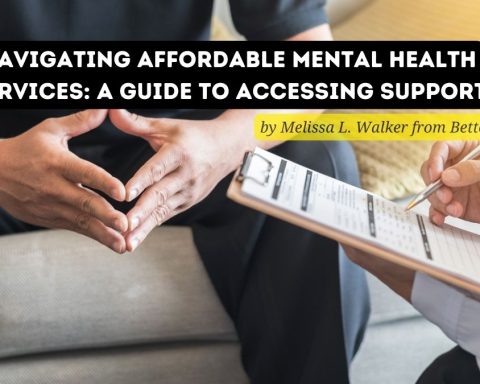The COVID-19 has brought numerous changes to how most people live their lives, including altered daily routines, uncertainty, social isolation, financial pressures, and much more.
You may be worried about catching the virus, how long the pandemic will last, and what the future holds. Misinformation, rumors, and information overload make it unclear what one needs to do during these trying times.
All of this can result in anxiety, loneliness, sadness, fear, anxiety, and stress. Mental health disorders – including depression and anxiety – can worsen. Learning strategies you can use to maintain your mental health is one of the best things anyone can do.
Ways to Protect and Improve Your Mental Health During COVID-19
1. Limit Your Exposure to the News
While the news is supposed to be informational, after a certain point, it tends to be more upsetting. Ensure the information you consume is from non-sensationalist and reputable sources.
Also, evaluate how much news media is helpful for you to consume in a day and try to stick to this limit. It can be frustrating and upsetting to hear about crisis all day and see images that do not carry a positive message.
2. Plan How to Cope with Social Distancing
Social distancing is being used around the globe to mitigate the COVID-19 pandemic. Until an ideal solution to the epidemic is found, you may have to stay out of the places where friends and acquaintances meet or gather.
In times of crisis, everyone looks for comfort from others. For this reason, you must come up with creative ways to maintain connections with people close to you.
For example, create new traditions for connecting with friends, peers, and family. An excellent way to do this is by taking advantage of modern technology. For example, use messaging applications or call a friend or a family member. If you need to talk to someone face to face, take advantage of apps that allow a face to face communication.
3. Stay Busy
Distraction is one of the easiest ways to get rid of the cycle of negative thoughts that often feed depression and anxiety. Try to enjoy the hobbies that you can do at home. Clean out your closet or identify a new project that you want to start. Doing something positive to help with managing your anxiety is a positive coping strategy.
4. Get Help When You Need It
If you happen to experience stress reactions – that is, behaviors or feelings – in response to the pandemic for a couple of days in a row and you find it hard to carry out your regular responsibilities, it might be a good idea to seek help. With telephone counseling – which is discussed in detail in this article – it should be easy for you to talk to someone who can offer you the help you need without leaving your home.
Hoping that mental health issues will go away on their own often leads to worsening of the symptoms. Taking care of the problems as soon as possible is the key to staying healthy.
5. Set Priorities
COVID-19 pandemic has forced most people to stay at home. While you may think it is a good idea to create a life-changing list of the things that you have to achieve while at home, this can easily lead to stress.
Instead, you need to set reasonable goals every day and outline the steps you will need to take to achieve those goals. Give yourself credit for each step – irrespective of how small the action is – in the right direction. Keep in mind that some days will be better than others – hence, when you fail to achieve as you would have wanted to, do not beat yourself up.
6. Do a “Worry Drop” by Focusing on Positive Things
Take a journal and write a list of everything that is going well and be sure only to remember what is currently going well. Despite the situation created by the COCID-19 pandemic, maybe you will be able to spend more time with your kids or family, learn how to cook different meals, or read that book you have always wanted to read. Once you focus more on the positives, your worries should drop.
While managing a serious pandemic like COVID-19, it is easy to experience feelings of frustration, impatience, powerlessness, depression, and anxiety. When not monitored and taken care of, our mental health can deteriorate over time.
The good news, however, is that you can take care of your mental health while staying at home. With the tips outlined in this article, it should be much easier for you to increase your resilience during this period. If the self-care alternatives fail to work for you, be sure to reach out to a therapist as soon as you can.








